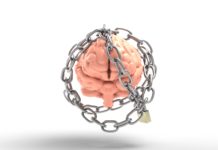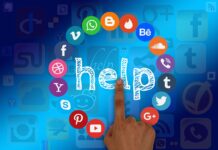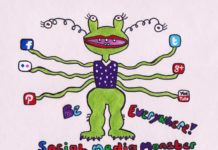Smartphone Based Interventions for Depressive Symptoms
New meta-analysis of smartphone based interventions demonstrates small-to-moderate effect.
Speaking, Not Texting, May Prevent Dehumanization in Disagreements
Researchers found participants were less likely to dehumanize those with whom they disagreed when they heard their voices.
Sociologists Interrogate Neurobiological Explanations in Criminology
A discourse analysis conducted by sociologists finds problematic assumptions and practices in the field of neurocriminology.
“This Microchip Will Deliver Drugs in Your Body by Remote Control”
-Motherboard reports on an implantable chip that can hold hundreds of doses of drugs and be activated by remote control.
The Experiential Democracy Project: A Depth Approach to the Legislative Process
The basic idea of the experiential democracy project is to supplement conventional legislative or other forms of diplomatic and moral deliberation with person-centered (“I-Thou”) principles of encounter. These principles, which derive from existential-humanistic psychology and person-centered therapy, stress the attempt to engage participants to more intimately understand each other, and through this context to more intimately understand each other’s often conflicting positions on issues of moral import.
Screen Time Linked to Increased Depressive Symptoms Among Teens
New study examines how increased screen time and social media may be contributing to depressive symptoms and suicide risk in teens
Sociologist Questions Effectiveness and Ethics of Mental Health Services
Medical sociologist David Pilgrim argues that mental health care is neither effective nor “kindly,” as it often relies on flawed research and ineffective treatments.
Doctors Frustrated With Electronic Medical Records
"Disappointing" and "tragedy" are some of the descriptives everyday doctors are using to describe the expanding use of electronic medical records, according to The...
Sense of Purpose Reduces Negative Effects of Social Media Use
New research shows that having a strong sense of personal meaning and purpose can reduce the negative effects of social media use.
Training Program Decreases Police Force and Arrests for Mental Health Crisis Calls
Colorado police trained in crisis intervention infrequently use force or arrest individuals experiencing a mental health crisis and are likely to transfer individuals to a treatment facility.
Patient Race Associated with Varied Psychiatric Treatment Experiences
Findings point to association between race and the mental health care experiences of African-American and White veterans.
Psychology Must Become a Sanctuary Discipline to Heal Racial Trauma
Researchers explore pathways of healing racial trauma in Latinx immigrant communities.
Compelled Disclosure of Campus Sexual Assault May Be Harmful for Survivors
The majority of universities require most or all employees to report disclosures of sexual assault, but these policies may be ineffective at addressing campus sexual violence and disempowering for survivors
Clinton Releases Mental Health Plan
Today, Hillary Clinton’s campaign released their plan for addressing mental health care in the United States. The plan calls for a full integration of...
Research Suggests that Forensic Psychological Examinations are Unreliable and Biased
Concerns have been raised about inconsistent and unreliable results, which may lead to injustices in sentencing or even wrongful convictions.
Evolution or Revolution? Why Western Psychiatry Won’t Change by Incremental Steps
...but how realistic is it to expect that the biological skew of Western psychiatry can be sustainably changed one small step at a time?
FDA Defends Decision to Approve Digital Aripiprazole
Members of the U.S. Food and Drug Administration’s Psychiatry Products division go on the defensive in a new article, responding to concerns about the agency’s approval of digital aripiprazole.
Do Social Network Sites Help or Harm Well Being?
How does social network site use influence well-being? Researchers suggest this depends on the extent to which site use is “connection-promoting."
Study Privileges the Voices of Persons Hospitalized Against Their Will
How people are treated after being hospitalized can either help them to overcome the traumatic effects of coercion or make them worse.
Challenging Resilience as a Buzzword: Toward a Contextualized Resilience Model
Researcher Dr. Silke Schwarz highlights how Western psychology’s construction of individual resilience deflects emphasized individual pathology and deflects efforts at structural change.
Loneliness as Lethal: Researchers Name Social Isolation a ‘Public Health Threat’
Researchers present loneliness as a health threat facing a growing number of Americans.
VA Hospitals Perform Worst on Inpatient Psychiatric Care
The results of the cross-sectional study show that U.S. Department of Veterans Affairs (VA) owned hospitals perform worst on most measures.
Mental Health Apps May Lead to Overdiagnosis, Study Finds
A new study finds that mental health apps promote a one-dimensional view of mental health.
Using Participatory Action in Bioethics Research
Participatory action approaches in bioethics research used to decrease coercion and seclusion in psychiatric treatment.
Estimates of Depression Prevalence are Exaggerated, Study Finds
New research demonstrates that common methods for estimating depression prevalence lead to overestimation and exaggerated statistics.






























